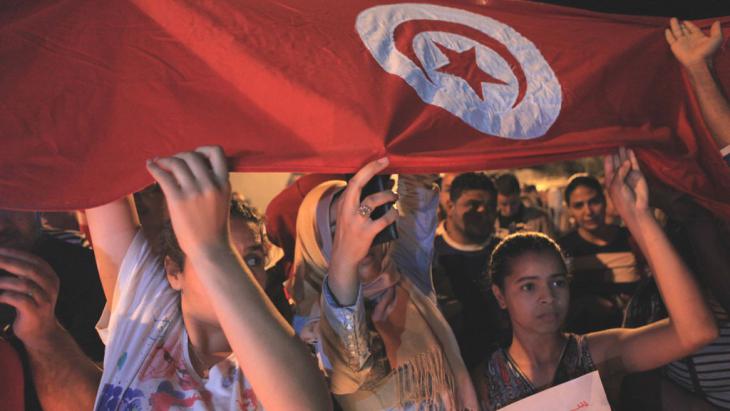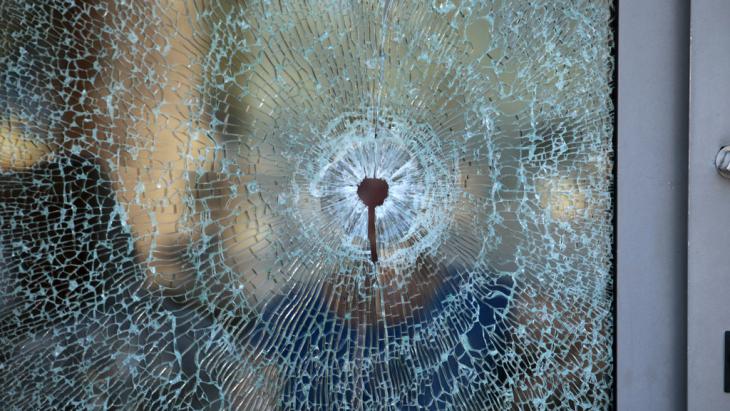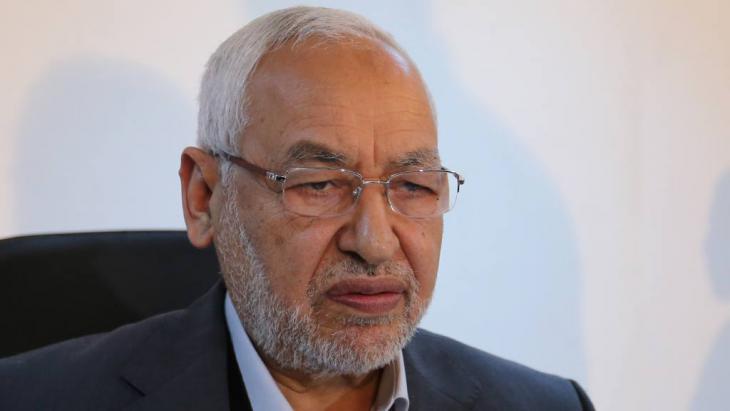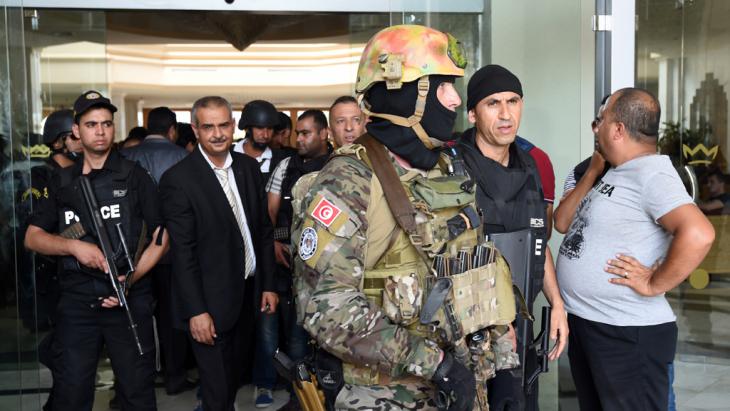A battle for freedom and dignity

On 4 July, the United States celebrated the attainment of freedom and independence as it does every year. In Tunisia, 4 July also marked a turning point on the path to freedom and democracy – but not in the positive sense. On this day, Tunisian President Beji Caid Essebsi felt compelled, in response to the growing threat of terrorism, to declare a national state of emergency and curtail important personal freedoms.
The latest attack in Sousse has again made it clear just how stony Tunisia's path to a secure democracy remains. After all, the bloodiest terrorist attack in the history of our nation seeks to destroy what we have built up in the few years since Ben Ali was ousted, namely an open society with a pluralist governmental system and a democratic constitution enshrining fundamental rights and freedoms.
Battle for the young generation
We were all horrified by the gruesome images of tourists murdered on the beach. But those images have also galvanised Tunisian citizens and their political representatives in their opposition to those who oppose our path to democracy. This battle is a battle for freedom and dignity, but first and foremost, it is a battle for the next generation, for the young people in Tunisia, but also in Libya, Syria and the entire Arab world.
But this battle is also being fought in Germany, France, Britain and across the whole of Europe. The danger that young people will lose their bearings and drift towards extremism and fanaticism is also present in these countries. Many IS fighters come from my home country, but every day, many young people also set out from western Europe to fight in Syria. Whether in Djerba or Dortmund, the challenges are essentially the same. And we can only overcome them together with our European partners.
Of what challenges am I speaking? The Arab Spring was driven by young people. It was they who took to the streets during the revolution and called for an end to the ancien regime. And it is these young women and men who must now be involved in the establishment of the new Tunisia on a firm foundation of democracy, freedom and social justice.
We must show young people that democracy and freedom will be the basis for a better future, e.g. for good jobs, for freedom of expression, for state institutions that respect their rights and for a welfare system that supports them in their personal development. A sense of exclusion has set in against a backdrop of chronic unemployment and social and regional inequalities. IS is exploiting this feeling, ensnaring young people with false promises and an apocalyptic vision.

Democracy and freedom as the basis for a better future
How can we counter this sense of alienation and ensure that democracy benefits young people across the entire region? First and foremost through participation, prosperity and security. Directly after the revolution in Tunisia, work began on a new constitution, institutional reform and the revision of existing laws. The key pillars of this robust constitution are the separation of powers, the rule of law and respect for personal rights and freedoms.
It is now our duty to make sure that the effects of this new constitution will not only be felt and experienced in the centre of the nation, but also in the rest of the country. The Tunisian government is working on a wide-reaching decentralisation project aimed at furthering the establishment of federal structures and empowering regional and local authorities.
The Tunisian state must focus on the participation and integration of all regions. Our aim is to ensure that democracy doesn't remain an abstract concept ("them up there"). Democracy must be tangible and have real effects, offering concrete advantages for each and every Tunisian.
By strengthening local government structures, more Tunisians can have a direct influence on the decisions that affect them. But participation alone will not solve the problem. It must go hand in hand with economic growth that leads to prosperity for all. For decades, Tunisia has promoted itself as an economic miracle, but the impressive growth figures have masked the unequal distribution of wealth.
We hope that the establishment of federal structures, the implementation of which is envisaged in time for local elections next year, and the strengthening of local self-administration will provide an important stimulus for economic growth. In this process, great importance is attached in particular to the promotion of rural development on the periphery. In the establishment of these federal structures and a dual education system, Germany is an important role model for Tunisia.

Limited tolerance
However, all these efforts and projects will have to withstand sustained attacks by IS and its sympathisers. For that reason, improving the general security situation is of paramount importance. The Tunisian government – and not least the Ennahda Party, which I lead – stands for tolerance and co-operation between the various political groups in Tunisia.
But this tolerance does have clear limitations. Those who operate outside the framework of our constitution, who preach hatred, misuse religion to further their political interests and attempt to impose their own ideas using violence, must expect to feel the full force of the law.
For this reason, after the most recent attack, the government decided to intensify its efforts to reform anti-terror laws to ensure that state institutions have the necessary means at their disposal to decisively counter further recruitment by IS and the incitement to violence.
We must learn painful lessons from the latest attacks on the Bardo Museum and in Sousse: co-ordination between the army and security forces, which are controlled by the Interior Ministry, must be significantly improved. Security forces' reform as well as new approaches in training and practical police work in particular, are imperative.

Essential support and co-operation in the security sector
Here too, we need the support of our European partners: as part of the transformation partnership between Germany and Tunisia, the German government has already provided support in the form of training and policing programmes. In view of the new challenges it faces, however, Tunisia also needs help preparing its security forces to meet those challenges within a democratic context. This is most likely to succeed through the transfer of expertise and investments between partner nations.
Nevertheless, combating terrorism must not be an excuse to regress to a repressive and authoritarian regime. Tunisia must not revert to its former guise of police state – any loss of freedoms would be a great victory for terrorist groups. The state of emergency must therefore only stay in place for a short time. It is important to find the right balance between safeguarding hard-won freedoms and the security of the nation and those who visit it.
Tunisia is a small nation on the edge of Europe. But it has already shown the world that when united, it can achieve the apparently impossible.
The Tunisian revolution was our very own "Fall of the Wall". On 14 January 2011, the wall of fear was torn down in Tunisia. Despite all the challenges we face, we will not give up these hard-won freedoms. For that reason, I would like to end with the words of a German politician: people of the world, look to Tunisia and understand that we can only solve the problems of this era together!
Rachid Ghannouchi
© Qantara.de 2015
Translated from the German by Nina Coon
